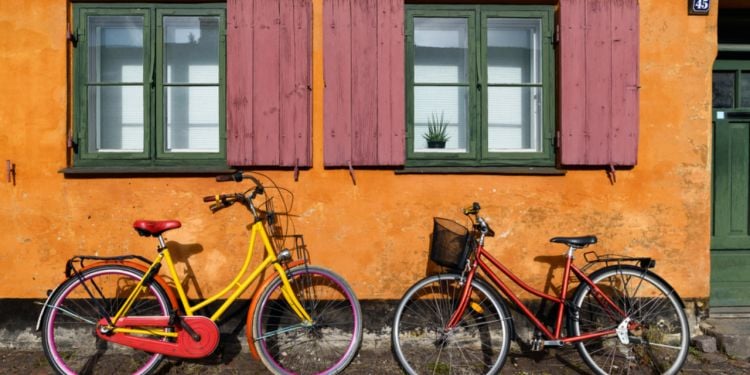
Even if you have lived as an expat in different places, Copenhagen's property market is a whole new ball game. Forget what you think you know about real estate and start with a blank slate. Procedures for buying property in Copenhagen
The first thing to keep in mind when buying property in Copenhagen is your ability to legally purchase a property. Here are some important rules to keep in mind as an expat:
Expats who have been living in Denmark for less than five years need permission from the Danish Ministry of Justice to purchase a property. Although this is largely a formality and handled by a lawyer when purchasing property, it's an important legal step.When you buy property in Denmark, the government considers it as a show of intent that you will be staying in Denmark permanently. Information including marital status, children, work status, and fluency in Danish are all considered when an expat attempts to buy property in Copenhagen.
It is not impossible for an expat to buy property in Copenhagen ' but it's quite a process! Take the time to familiarise yourself with the legislation for foreign citizens' acquisition of real estate in Denmark.
Funding a property purchase in Copenhagen
Property in Copenhagen is both expensive and highly competitive. Unless you have a lot of money, you will probably shop around in the lower end of the market. Be ready to bid more than the asking price as the lower-priced properties are snatched up quickly.
As an expat, you don't receive the same benefits as locals when it comes to buying property. It is harder to get a mortgage and interest rates will often be higher.
To get an idea of property prices in Copenhagen, use search engines like Boliga.dk for the largest selection of results. Boligsiden.dk is used by real estate agents to market properties.
Things to keep in mind when it comes to budgeting for a property in Copenhagen:
The crux of the Danish property market lies on 'realkredit loans.' Basically, property purchases are financed through issued bonds. Getting a mortgage is a complicated process; potential interest rates for your situation are essential to setting up a budget.
Consumption prices (heating, gas, water, electricity, internet, and similar utilities) need to be calculated as part of your budget.
A minimum of 5% of a property's value is required as a down payment.
Understanding the local real estate market
Property values in Copenhagen are influenced by several factors.
Location
As in most cities, distance to facilities is a big deal! Within biking distance to the city centre is the best option. Other things to look out for are walking distance to public transport (metro, bus, bike rental options, etc.) and distance to public parks.
Neighbourhoods free of vandalism and family-friendly are safe areas to buy property in. Beautiful views and areas free of noise are preferable but come at a cost. For example, a house in Hellerup with a seaside view can cost up to an average price of 12 million kroner. Areas around the outskirts such as Brønshøj and Vanløse are more affordable.
Size
Apartments in Copenhagen are quite compact. Don't expect a large house, especially if you plan to purchase within a few kilometres' radius of the city centre.
Property sizes are calculated to include common areas and hallways. It is worth the effort to measure out potential properties to make sure of the measurements, especially in older buildings. Since central apartments are priced per square metre, you want to make sure you get what you are paying for.
Additional costs
Even if you purchase an 'ejer' property (full ownership) as opposed to an 'andel' property (buying a share of ownership), there are monthly fees and taxes involved. Heating and water costs can run high in older apartments, and transaction costs of purchasing property can account for tens of thousands of krone extra.
Set up your budget with as many details as possible to make sure that you can afford to buy a property.
Timing
The months of January and September see a significant influx of newcomers to Copenhagen. If you will also be arriving during these peak property-purchasing times, start your hunt early. If you have friends in the city, it is worth asking them to check out properties for you.
We do our best to provide accurate and up to date information. However, if you have noticed any inaccuracies in this article, please let us know in the comments section below.








